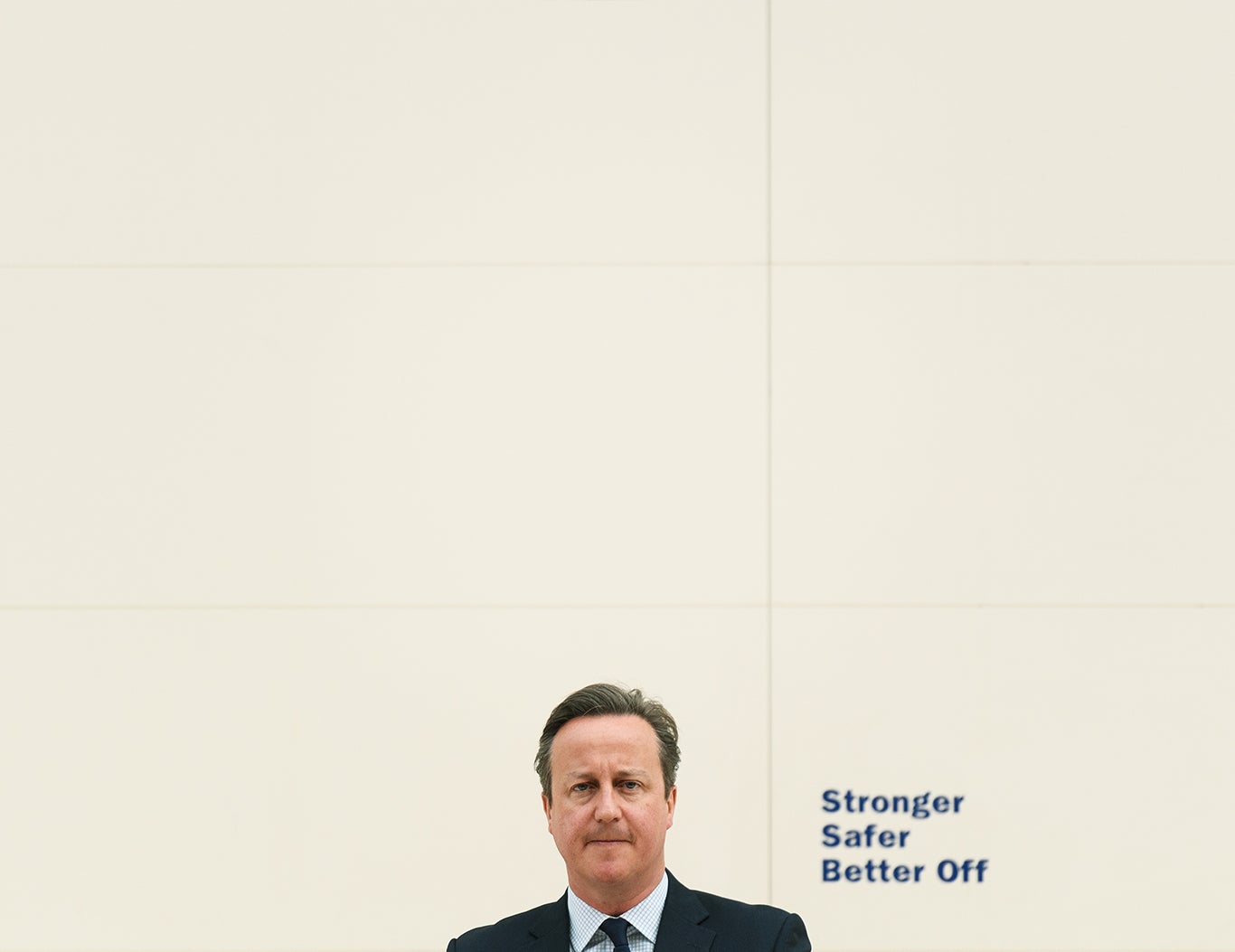What is Purdah, and how will it change the EU referendum debate?
The big EU questions: Starting on Friday, Purdah will prevent civil servants from helping the Government's referendum campaign – but what will actually change?

Your support helps us to tell the story
From reproductive rights to climate change to Big Tech, The Independent is on the ground when the story is developing. Whether it's investigating the financials of Elon Musk's pro-Trump PAC or producing our latest documentary, 'The A Word', which shines a light on the American women fighting for reproductive rights, we know how important it is to parse out the facts from the messaging.
At such a critical moment in US history, we need reporters on the ground. Your donation allows us to keep sending journalists to speak to both sides of the story.
The Independent is trusted by Americans across the entire political spectrum. And unlike many other quality news outlets, we choose not to lock Americans out of our reporting and analysis with paywalls. We believe quality journalism should be available to everyone, paid for by those who can afford it.
Your support makes all the difference.Why are we asking this question now?
On Friday 27 May the Government will go into a period of official "Purdah" that will last for four weeks until the European referendum vote on 23 June.
I thought Purdah was an Islamic practice – what’s it got to do with the European Referendum?
The word Purdah is derived from the Urdu and Persian word parda meaning "veil or curtain" and often refers to the practice in certain Muslim and Hindu societies of screening women from men or strangers, especially by means of a curtain.
However at some stage in the early 20th century we appropriated to word and used it in a political context.
In what way?
Purdah refers to a specified period of time (usually three or four weeks) before an election when the Government is banned from making any kind of announcement about new or controversial initiatives or laws that could sway the outcome of a vote. The idea is that the political party who is in Government should not be able to use the civil service in the run up to an election to give themselves a unfair advantage.
Purdah applies not just to Westminster elections but also for council elections and European elections.
In this case it means a temporary respite from Government reports analysing what will happen if Britain leaves the EU. One of these was released ahead of time by the Treasury on Monday, and rang alarm bells over Brexit's supposed impact on output, house prices and employment.
But this is not an election so why have we got Purdah now?
It was a key demand of those in favour of Brexit that Purdah should be imposed before the election to stop David Cameron using the Government machine to make the case for a vote to remain. Mr Cameron conceded and a Purdah period was written in the legislation that authorised the European referendum.
What does it mean for civil servants?
It means that their life will be a little less busy. But it also means they are banned from involving themselves in any part of the EU referendum campaign during work time. For example after Friday no civil servants will be able to help Mr Cameron or other remain ministers take part in campaigning visits or assist him writing speeches.
All this will have to be done by the Better In campaign. No Government money can be used to help them either. Some civil servants have had to resign to take part in the campaign helping the PM.
What difference will I notice?
For a start there will be an end to the dire warnings of economic, military and social collapse if we pull out of the EU from Government bodies. That’s why we have had so many of them recently – because it will have to stop after Friday.
Mind you, that won’t stop Mr Cameron and George Osborne repeating them endlessly until polling day.
Join our commenting forum
Join thought-provoking conversations, follow other Independent readers and see their replies
Comments